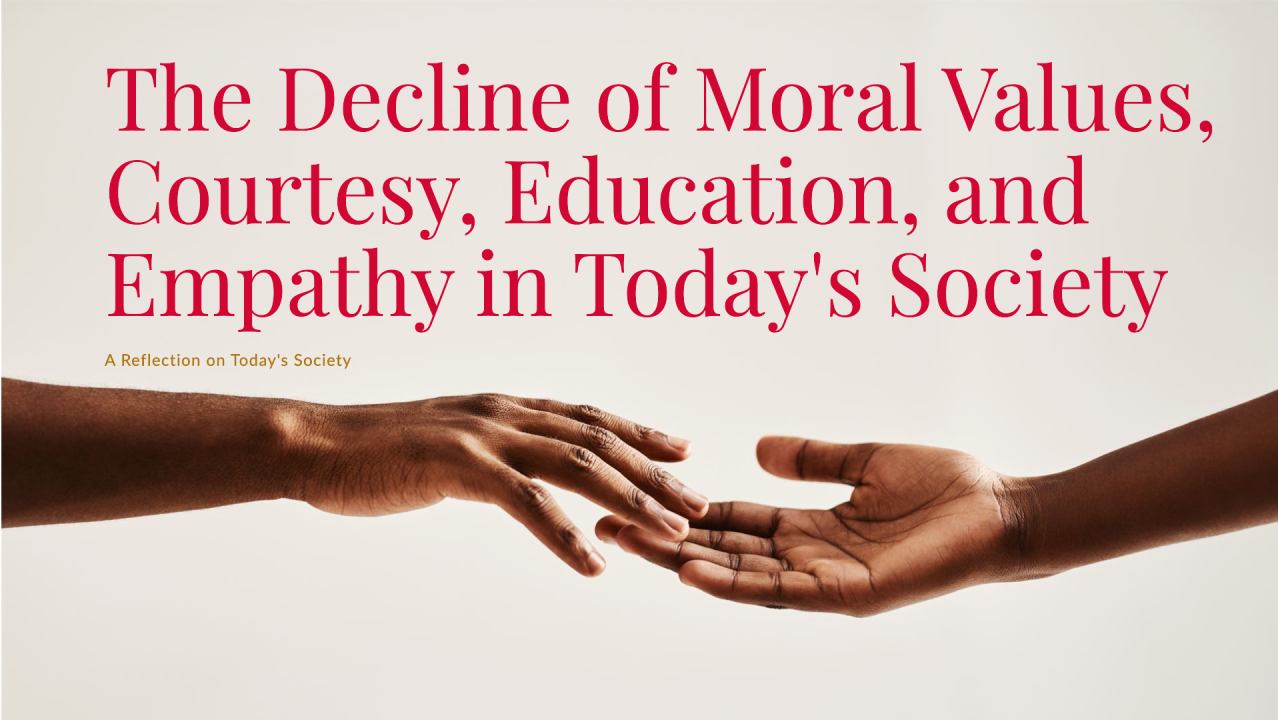Christian Life
The Role of Church Community in Spiritual Growth
The Bible consistently emphasizes the importance of community in nurturing faith, building relationships, and deepening spiritual maturity.

The Role of Church Community in Spiritual Growth
Spiritual growth is a vital aspect of a Christian’s life, and it is not a solitary pursuit. The Bible consistently emphasizes the importance of community in nurturing faith, building relationships, and deepening spiritual maturity. A local church community plays a crucial role in the development of believers, offering support, teaching, fellowship, and accountability. The early Christian church exemplified this community dynamic, as believers gathered regularly to encourage one another in their faith and to grow together in the knowledge of God. This study explores the essential role that the church community plays in spiritual growth, examining biblical principles, the benefits of fellowship, and practical ways the church fosters spiritual maturity.
1. Biblical Foundations for Church Community
The idea of spiritual growth within a community is rooted in the teachings of the New Testament, where the church is described not as a building but as the body of Christ, with each believer serving as an integral part of the whole. This metaphor highlights the interconnectedness of Christians and the interdependence that fosters growth.
a. The Body of Christ
In 1 Corinthians 12:12-27, Paul compares the church to a human body, emphasizing that every member is essential and that spiritual growth occurs when each person plays their part. Just as a body functions best when all its parts work together, the church thrives when its members are united in purpose and action.
Paul writes in 1 Corinthians 12:12, “For just as the body is one and has many members, and all the members of the body, though many, are one body, so it is with Christ.” This passage affirms that each believer contributes to the body of Christ’s overall health, growth, and mission. Spiritual growth, therefore, happens in the context of relationships with other believers, where each member strengthens and edifies one another.
b. Fellowship and Mutual Edification
The New Testament stresses the importance of fellowship, a key component of the church community. In Acts 2:42-47, we see the early church gathering regularly for teaching, fellowship, prayer, and breaking of bread. This shared experience was integral to the growth of the early church. Acts 2:42 says, “They devoted themselves to the apostles’ teaching and to fellowship, to the breaking of bread and to prayer.” This verse highlights the communal aspect of spiritual growth—gathering together to study God’s Word, share life, and pray together.
Fellowship serves as a platform for mutual edification, where believers can encourage, challenge, and support one another in their faith journeys. Hebrews 10:24-25 also encourages Christians to not neglect meeting together, but to spur one another on toward love and good deeds: “And let us consider how we may spur one another on toward love and good deeds, not giving up meeting together, as some are in the habit of doing, but encouraging one another—and all the more as you see the Day approaching.”
c. Discipleship and Teaching
Spiritual growth is rooted in sound teaching, which the church community provides through preaching, Bible studies, and discipleship programs. In Matthew 28:19-20, Jesus gives the Great Commission, instructing His followers to “go and make disciples of all nations” and to teach them to obey everything He has commanded. Discipleship is central to spiritual growth, and it occurs most effectively within the context of community.
Paul also emphasized the importance of sound teaching for spiritual growth in Ephesians 4:11-13. He writes, “So Christ himself gave the apostles, the prophets, the evangelists, the pastors, and teachers, to equip his people for works of service, so that the body of Christ may be built up until we all reach unity in the faith and in the knowledge of the Son of God and become mature, attaining to the whole measure of the fullness of Christ.” These verses point to the role of church leaders in equipping believers through teaching, so they can grow in spiritual maturity.
2. The Benefits of Church Community for Spiritual Growth
a. Encouragement in Times of Struggle
One of the most important functions of the church community is to provide emotional, spiritual, and practical support during times of hardship. The life of a Christian is not without challenges, including struggles with sin, suffering, loss, and uncertainty. During such times, the church community serves as a source of encouragement and hope.
Galatians 6:2 commands, “Carry each other’s burdens, and in this way you will fulfill the law of Christ.” When believers come together to support each other in difficult times, they share in one another’s burdens, which lightens the load and fosters a sense of solidarity. The church offers prayer support, encouragement, and counsel, allowing individuals to experience God’s love and care through the actions of others.
b. Accountability and Growth in Holiness
The church community provides an essential aspect of accountability, helping believers stay on track with their spiritual goals. Without accountability, Christians can easily become complacent or drift away from their commitment to Christ. Proverbs 27:17 says, “As iron sharpens iron, so one person sharpens another.” This verse illustrates the role of fellow believers in helping one another grow, challenging each other to live in accordance with God’s will.
Churches often implement small groups, mentoring relationships, and accountability partners to encourage individuals to pursue holiness. These relationships provide an opportunity for mutual accountability, where believers can confess sin, receive counsel, and encourage each other toward Christlike living. Additionally, church leaders help guide individuals in their spiritual journey, offering correction, guidance, and pastoral care when needed.
c. Opportunities for Service and Ministry
Spiritual growth is also fostered through serving others. The Bible teaches that each believer has been gifted by God to serve others and build up the church. Ephesians 4:12 says that God gives church leaders “to equip his people for works of service, so that the body of Christ may be built up.” Spiritual growth is not just about receiving, but also about giving—serving the needs of others through acts of love and ministry.
Being involved in the church’s ministries—whether through hospitality, teaching, missions, or helping those in need—enables believers to grow in their faith by putting their beliefs into practice. Serving others helps develop humility, selflessness, and love, all of which are essential components of spiritual maturity. Additionally, serving in the church fosters a sense of belonging and purpose, as individuals see how their unique gifts contribute to the overall mission of the church.
d. A Place for Worship and Adoration
Worship is central to the Christian faith and plays a significant role in spiritual growth. The church community offers a place where believers can collectively come together to worship God through singing, prayer, communion, and the hearing of God’s Word. Corporate worship helps believers focus on God’s greatness, holiness, and grace, leading to deeper devotion and reverence.
Jesus said in John 4:23-24, “Yet a time is coming and has now come when the true worshipers will worship the Father in the Spirit and in truth, for they are the kind of worshipers the Father seeks.” Worshiping together in spirit and truth strengthens individual faith and unites the church in a common purpose of glorifying God. In a corporate setting, believers experience the joy of shared worship, which deepens their understanding of God’s presence and fosters spiritual growth.
3. Practical Ways Churches Foster Spiritual Growth
To facilitate spiritual growth, churches must be intentional in their practices and structures. A thriving church community fosters an environment where believers can grow in faith, service, and obedience to Christ.
a. Bible Teaching and Preaching
Sound biblical teaching is foundational to spiritual growth. Churches should prioritize the teaching of God’s Word through sermons, Bible studies, and other educational opportunities. The Bible is the ultimate guide for Christian living, and a church committed to sound doctrine ensures that believers are equipped to grow in faith and understanding.
Regular Bible studies and Sunday school classes allow believers to dive deeper into Scripture and develop a richer knowledge of God’s Word. Churches that prioritize teaching help believers understand theological concepts, encourage personal Bible reading, and provide opportunities for in-depth study of Scripture.
b. Small Groups and Discipleship Programs
Small groups are an excellent way for believers to build relationships, study the Bible, and support one another. Small groups provide an intimate environment where individuals can share their struggles, pray for one another, and grow in their knowledge of Scripture. These groups often meet regularly for Bible study, prayer, and fellowship.
Discipleship programs are also critical in helping new believers grow in their faith and understanding of what it means to follow Jesus. Mentorship relationships, one-on-one discipleship, and group discipleship classes create an environment where believers can ask questions, learn from more mature Christians, and be guided in their spiritual journeys.
c. Service and Outreach Opportunities
A church that prioritizes service and outreach provides ample opportunities for members to put their faith into action. Through serving the community, believers grow in humility and love, and they witness the power of God working through them. Service also cultivates a heart for evangelism, where believers share the hope of the Gospel with others.
Churches can offer various opportunities for members to serve both within and outside the church. These may include local missions, food banks, homeless outreach, mission trips, and other forms of community engagement. Through these activities, members learn to live out their faith in practical ways, further deepening their spiritual maturity.
d. Prayer and Fellowship
Prayer is vital for spiritual growth, and churches that prioritize corporate prayer and fellowship encourage believers to depend on God and seek His guidance. Prayer meetings, both large and small, provide a space for believers to intercede for one another, express their gratitude, and seek God’s will.
Fellowship opportunities, such as church events, potlucks, and social gatherings, allow believers to form meaningful relationships with others in the church. These relationships provide support, encouragement, and a sense of belonging, all of which contribute to spiritual growth.
4. Conclusion
The church community plays a pivotal role in the spiritual growth of believers. It provides an environment where individuals can worship, study Scripture, serve others, and build meaningful relationships that foster maturity in Christ. The Bible emphasizes the importance of fellowship, discipleship, accountability, and service, all of which are integral to spiritual growth. When believers come together in community, they experience the fullness of what it means to be part of the body of Christ. The church is not just a place to receive spiritual nourishment, but also a place to contribute, serve, and grow in faith alongside others. Ultimately, spiritual growth within the church community is a journey
Christian Life
The Tragedy of Moral Decay in Higher Learning institutions
Explore the growing moral decay in higher learning institutions, its causes, consequences, and impact on academic integrity and societal values.

For years, universities, Colleges and other Higher learning institutions were seen as places of intellectual growth and character development. However, many higher learning institutions today have become breeding grounds for moral decadence, where students and even lecturers engage in behaviors that destroy both academic integrity and personal values. From unchecked sexual immorality to rampant substance abuse, violence, and corruption, the decay runs deep.
Sexual immorality is one of the biggest stains on campus life. What was once considered shameful has become normal, even celebrated. Fornication is common, with students engaging in casual relationships driven by lust rather than love. Many young women fall victim to deceitful love affairs, only to be left heartbroken and used.
The normalization of lesbianism and homosexuality has also taken root. Some students, influenced by peer pressure or curiosity, experiment with same-sex relationships, leading to moral confusion and identity crises. Others engage in secret affairs with older partners or even lecturers who manipulate them in exchange for better grades or
financial benefits. Adultery is rampant, with some married lecturers preying on students, turning the academic environment into a den of sexual corruption.
Academic dishonesty is another deep-seated issue. Hard work and diligence are now seen as outdated concepts, replaced by cheating, bribery, and leaked examination papers. Some students no longer feel the need to study, relying instead on corrupt lecturers who sell grades to the highest bidder. The value of education has been reduced to a mere transaction, and many graduates leave university without the knowledge or skills needed to succeed.
Campus life has also become synonymous with drug and alcohol abuse. The pursuit of pleasure has overtaken the pursuit of knowledge. Many students indulge in excessive drinking, turning nights into a blur of parties and reckless behavior. The use of drugs—marijuana, cocaine, and other harmful substances—has become widespread, with some students getting addicted and ruining their futures.
Smoking is no longer seen as a bad habit but as a sign of independence and “maturity.” Shisha lounges and secret drug dens operate freely, drawing in young people who waste their lives in addiction. Many students skip classes, spending their time in bars and drug joints rather than in lecture halls.
As morality declines, violence increases. The lack of self-control and discipline among students has led to tragic incidents of stabbings and deadly fights. Many of these cases stem from toxic love triangles, where jealousy and betrayal push students to take extreme actions.
Reports of students stabbing each other to death over relationships have become disturbingly common.
A boyfriend catches his girlfriend texting another man and, in a fit of rage, pulls out a knife. A girl, blinded by jealousy, attacks a fellow student over suspicions of an affair. Such incidents reveal the deep emotional instability and lack of moral guidance among students, leading to irreversible consequences.
Campus hostels, once meant to be safe spaces for students, have become crime scenes where love-fueled violence erupts. Arguments escalate into fistfights, and fistfights turn into stabbings. Instead of resolving conflicts through dialogue, students resort to deadly force, ending promising lives before they even begin. The inability to manage emotions, coupled with the influence of drugs and alcohol, has made universities hotbeds of violence.
With all these vices comes an inevitable consequence: depression and hopelessness. Many students, trapped in toxic relationships, addiction, and academic failure, fall into deep despair. The pressure to fit into this morally decayed society leaves many feeling empty and worthless.
Christian Life
Nakuru and its Famous Prophet Dr. Owuor

The people of Nakuru love Prophet Dr. David Owuor very much. In the just concluded meeting in NAKURU they didn’t shun to openly confess it.
The business community at large confessed that business flourish most in the presence of the Prophet in the city, owing to the large influx of millions.

Interestingly, the business community gather together in masses at Merica Hotel every morning when the prophet is in the city. Then the prophet comes preaches to them a bit and blesses them.
The next day they will still come again, they feel that the Prophet replenishes their hearts every day.
As the super brilliant and magnificent chariot-like convoy of the prophet heads to the grounds of the healing service or conference, the Bodaboda people in the city escort the elegant convoy of the prophet. It’s a situation full of color and circumstance.
The Prophet preserves acres of lands deliberately near His meetings for the hustlers and all business people to help them take advantage of the millions upon millions. The Prophet further supplies the business people with water and other amenities they need to flourish their business.
When he was leaving Nakuru last Saturday, the business people and the city community gathered in largest numbers at Merica Hotel Kenyatta avenue to Bid Him goodbye. They confessed that they felt sorrowful that he was leaving because they love him very much. The Prophet blessed their families, business, health, new year and encouraged them to love Jesus and live in holiness.
When the Magnificent convoy of the Prophet had left, many people criss-crossed the streets through a short cut to bid the prophet goodbye for a second time.
Had it been possible they would have followed the meteoric Convoy of the prophet; they say that they see the JESUS in the prophet.
The leaders of the county government of Nakuru also thanked the prophet for helping flourish the economy of Nakuru.
Video courtesy; A viral video of a phenomenal in Nakuru, as the City community, business people, hustlers, the rich, all together with believers lined up all the way towards the foot Bridge Celebrating, joyous and bidding goodbye to the wonder inspiring magnificent Convoy of prophet Dr. David Owuor Leaving Nakuru last Saturday.
They requested that the Prophet be coming many times to Nakuru as possible. The Matatu operators also say the same.
Christian Life
What is the Meaning of Christianity?
Christianity is founded on the life, teachings, death, and resurrection of Jesus Christ

Christianity is one of the world’s largest and most influential religions, with over two billion followers worldwide. Rooted in the teachings of Jesus Christ, Christianity is a faith that emphasizes love, grace, redemption, and a personal relationship with God. It has shaped cultures, philosophies, and civilizations for over two thousand years. But what exactly is Christianity, and what does it mean to be a Christian? This article explores the core beliefs, practices, and significance of Christianity in the lives of believers and society.
The Foundations of Christianity
Christianity is founded on the life, teachings, death, and resurrection of Jesus Christ. The name “Christianity” comes from “Christ,” which means “the Anointed One” in Greek. Christians believe that Jesus is the Son of God and the promised Messiah prophesied in the Old Testament. The core foundation of Christianity is rooted in the Bible, which consists of the Old and New Testaments, serving as the authoritative scripture for faith and practice.
God and the Trinity
One of Christianity’s central doctrines is the belief in one God who exists in three persons: God the Father, God the Son (Jesus Christ), and God the Holy Spirit. This doctrine, known as the Trinity, affirms that God is one in essence yet distinct in personhood. The Trinity is a profound mystery that underscores the complexity and unity of God’s nature.
Jesus Christ: The Savior
At the heart of Christianity is Jesus Christ, whom Christians believe to be both fully divine and fully human. Jesus lived a sinless life, performed miracles, and preached about the Kingdom of God. His teachings emphasized love, forgiveness, humility, and the importance of faith in God. His crucifixion is seen as the ultimate sacrifice for humanity’s sins, and His resurrection is the cornerstone of Christian faith, signifying victory over sin and death.
Salvation and Grace
Christianity teaches that salvation is a gift from God and cannot be earned through good deeds alone. Instead, it is granted through faith in Jesus Christ. According to Ephesians 2:8-9, “For it is by grace you have been saved, through faith—and this is not from yourselves, it is the gift of God—not by works, so that no one can boast.” This concept of grace underscores the unconditional love and mercy of God toward humanity.
The Bible: The Word of God
The Bible is regarded as the inspired and authoritative Word of God. It is divided into two main sections:
- The Old Testament, which includes the creation story, the history of Israel, prophecies, and wisdom literature.
- The New Testament, which focuses on the life and teachings of Jesus, the acts of His apostles, and letters to early Christian communities.
The Bible serves as a guide for moral living, spiritual growth, and understanding God’s will. Christians rely on scripture for wisdom, encouragement, and direction in their daily lives.
The Purpose of Christianity
Christianity provides meaning and purpose by answering fundamental questions about existence, morality, and the afterlife. It teaches that humans are created in God’s image, endowed with intrinsic value and purpose. The primary goal of a Christian life is to glorify God, cultivate a relationship with Him, and follow Christ’s teachings.
Love and Compassion
Christianity emphasizes love as the greatest commandment. In Matthew 22:37-39, Jesus declares, “Love the Lord your God with all your heart and with all your soul and with all your mind. This is the first and greatest commandment. And the second is like it: Love your neighbor as yourself.” Love, kindness, and compassion are central to Christian living.
Spiritual Transformation
Becoming a Christian is not just about following a set of rules but undergoing a transformation of the heart and mind. Christians believe in being “born again” (John 3:3), signifying a spiritual rebirth through faith in Christ. This transformation leads to a life of righteousness, humility, and a commitment to doing God’s will.
Christian Practices and Traditions
Christianity is expressed through various practices, rituals, and traditions that strengthen faith and foster community.
Prayer and Worship
Prayer is a fundamental aspect of Christian life. It is a way to communicate with God, seek guidance, express gratitude, and intercede for others. Worship, both personal and communal, is an essential practice, with churches serving as places for praise, teaching, and fellowship.
Sacraments and Ordinances
Many Christian denominations observe sacraments or ordinances that symbolize and affirm faith. The two most widely recognized are:
- Baptism: A public declaration of faith and identification with Christ’s death, burial, and resurrection.
- Holy Communion (Eucharist): A remembrance of Jesus’ sacrifice, commemorating His body and blood through bread and wine.
Fellowship and Church Community
Christianity is not meant to be practiced in isolation. Believers gather in churches to encourage one another, worship together, and study the Bible. The church serves as a spiritual family, providing support, accountability, and opportunities for service.
Christianity’s Influence on Society
Christianity has profoundly impacted history, culture, and ethics. It has inspired humanitarian efforts, education, art, and governance.
Moral and Ethical Teachings
Christian ethics have shaped societal values, emphasizing justice, honesty, charity, and the dignity of human life. Many legal systems are influenced by Christian principles of morality and justice.
Charity and Humanitarian Work
Christianity promotes caring for the less fortunate. Many hospitals, schools, and relief organizations have Christian roots. Christians engage in missionary work, disaster relief, and social justice initiatives worldwide.
Christianity and the Afterlife
Christians believe in eternal life and the promise of heaven. According to John 14:2-3, Jesus assures His followers: “My Father’s house has many rooms… I am going there to prepare a place for you.” The hope of eternal life gives meaning to human existence and encourages believers to live with purpose and integrity.
Challenges and Misconceptions About Christianity
Despite its profound influence, Christianity is often misunderstood or misrepresented. Some common challenges include:
- Misinterpretations of Doctrine: Different denominations have varying theological interpretations, sometimes leading to confusion.
- Criticism of Hypocrisy: While Christianity teaches love and righteousness, some critics highlight instances of moral failure among self-professed Christians.
- Secularism and Atheism: In a rapidly secularizing world, Christianity faces challenges from skepticism and scientific materialism.
Conclusion
Christianity is more than just a religion; it is a way of life centered on faith, love, and a relationship with God through Jesus Christ. It provides answers to life’s deepest questions, offers hope and purpose, and calls believers to live out their faith through love, service, and spiritual transformation. Whether through prayer, worship, or acts of kindness, Christianity remains a guiding force for millions, shaping both individual lives and entire civilizations.
-

 End Times Updates10 months ago
End Times Updates10 months agoProphet Dr. Owuor Awakens Brazil: A Call to Holiness to the Contemporary Church.
-

 Bible11 months ago
Bible11 months agoIsrael War With Iran Significance
-

 End Times Updates10 months ago
End Times Updates10 months agoThe Book of Revelation: A Chapter-by-Chapter Breakdown
-

 Bible11 months ago
Bible11 months agoIsrael Releases Palestinian Prisoners in Hostage Exchange
-

 Jesus10 months ago
Jesus10 months agoRaising Children Together: A Biblical Approach to Parenting in Marriage
-

 Church History10 months ago
Church History10 months agoBiblical Principles for Dealing with Conflict
-

 Bible11 months ago
Bible11 months agoDo Israelites Use the Bible?
-

 Jesus11 months ago
Jesus11 months agoThe Power of Prayer in Strengthening Your Marriage

















